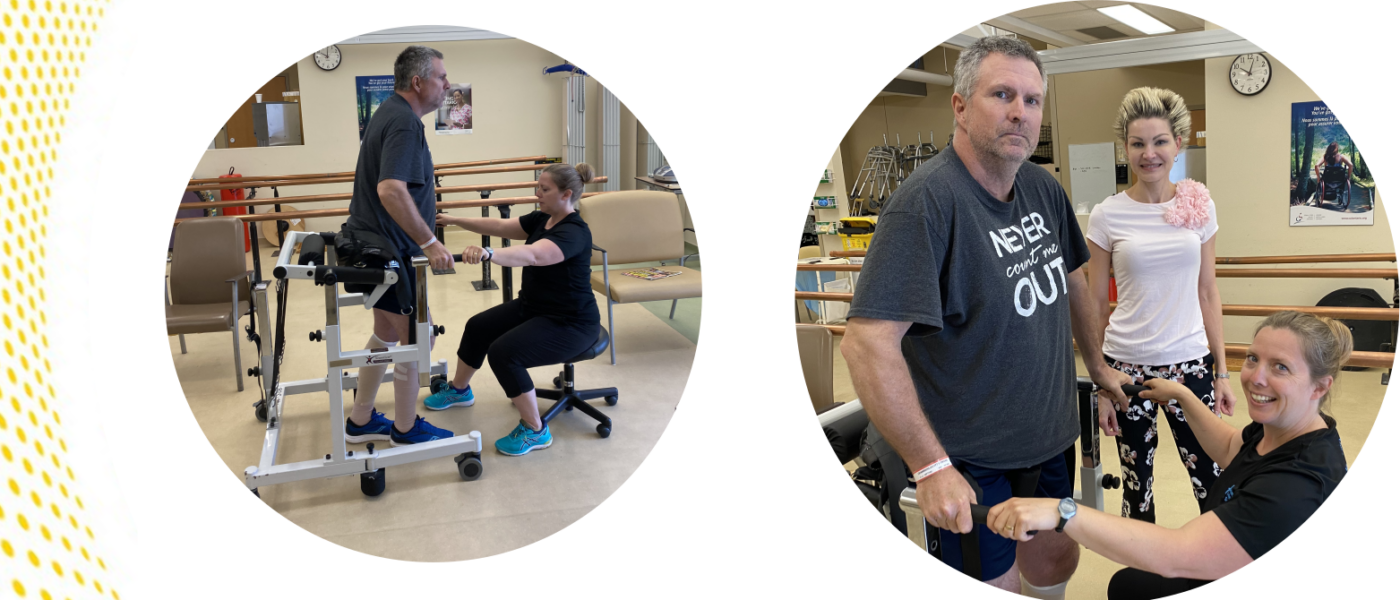SPINAL CORD INJURY
Fellowship Program at McMaster
It is my distinct honour to welcome you to the Spinal Cord Injury Rehabilitation Medicine Fellowship at McMaster University. Both traumatic and degenerative Spinal Cord Injuries are life-altering events for our patients and we aim to support them through their journey at various stages of treatment, recovery, and community reintegration. Our high-intensity Neurorehabilitation Program is housed out of the Regional Rehabilitation Centre, which is closely linked to the Hamilton General Hospital, a regional Trauma Centre. The Centre also offers highly specific inpatient and outpatient care for Stroke, Acquired Brain Injury (ABI), and Amputee patients. Our fellows will get exposure to over 80 annual admissions for Spinal Cord Injured patients on the inpatient unit. Specialized outpatient clinic exposure will include chronic SCI follow-up, SCI Urology clinics (including Urodynamics), SCI Respirology clinics (including Pulmonary Function Tests), Wheelchair/Seating clinic, as well as access to the Regional Concussion Clinic for patients with dual diagnoses of SCI and ABI. An opportunity also exists to become involved in SCI Fertility clinics at the Fellow’s request. Lastly, our vast Outpatient Rehabilitation Program (including Physiotherapy, Occupational Therapy, and Pool Therapy) facilitates ample collaboration with Allied Health Team members.
Welcome
Clinical Care
Clinical care will consist of participating in the SCI PM&R Consult service at the Hamilton General Hospital (predominantly Spine and Trauma units), and the Regional Rehabilitation Centre (Spinal Cord Injury Inpatient Rehabilitation as well as Outpatient Clinics). The current model consists of the Physiatrist designated as the MRP which allows for further development of medical knowledge and skills as well as Specialty training in the area of Spinal cord Injury rehabilitation. The Physiatrists at the Regional Rehabilitation Centre are well supported by Consult services at the Hamilton General Hospital in the area of Internal Medicine, Neurosurgery, Orthopaedic Surgery, Radiology, Psychiatry, and other essential Medical Specialties required by our patients. Collaboration with the patient’s surgical team during and after acute trauma allows for excellent continuity of care and communication. The MRP/Physiatrist model also allows for close collaboration with the patients’ Allied Health team members, such as Physiotherapists, Occupational Therapists, Social Workers, Nurses, and Respiratory Therapists, all of whom are essential to a successful discharge from our unit and a return to community living.
Education
We offer competency-based training, similar to that recently introduced into the PM&R Residency Program. The settings will include bedside teaching, one on one teaching sessions, outpatient clinics, weekly Team Rounds, attendance of weekly Academic Half Day for the PM&R Residents (with opportunities to present/lead sessions), and monthly attendance of PM&R Grand Rounds (with opportunities to present). Conference attendance at McMaster University and nearby Universities in the relevant subject matter will also be encouraged.
Research
Fellows will be encouraged to pursue individual research and/or join an ongoing research project. The goal will be a publication/submission of research at the end of the Fellowship year.
Certification Outcome
The successful completion of the fellowship will grant a Fellowship McMaster Certification.
Entry Requirements
The fellowship program is designed for recent graduates of Physical Medicine and Rehabilitation Residency Programs. Recent graduates are required to submit an application form and comply with McMaster University Postgraduate Medical Education requirements for residents and fellows.
Application Deadline
9-month deadline prior to July 1st of the starting year.
Goals of Training
- Describe acute management of SCI, including diagnosis and injury classification.
- Identify expected functional outcomes according to the level of SCI.
- Evaluate the use of medications in the treatment of SCI patients and select/prescribe appropriate drug therapy.
- Select, justify and interpret appropriate investigations including laboratory tests, radiological workup, urologic investigations, and electrodiagnosis.
- Identify and explain the prevention, recognition and management of common complications of SCI including:
- Neurological: acute and chronic pain, post-traumatic syringomyelia, autonomic dysreflexia, spasticity, sexual dysfunction, CSF leak
- Pulmonary/Cardiovascular: pneumonia, thromboembolism, respiratory impairment, orthostatic hypotension
- Endocrine/metabolic: temperature control, hypercalcemia, osteoporosis, fertility
- Musculoskeletal: heterotopic ossification, kyphosis, scoliosis, fractures
- Skin: pressure ulcers, ingrown toenails, wound infections
- Genitourinary: neurogenic bladder, UTI, pyelonephritis
- Gastrointestinal: ileus, neurogenic bowel
- Comorbidities: TBI, substance abuse, mood disorder
- Identify the roles of rehab technologies and environmental modifications in SCI and assess the appropriate use of these technologies for an individual patient (e.g. Assistive technology, Functional Electric Stimulation).
- Identify the roles of physical modalities in SCI and assess the appropriate use of these modalities for an individual patient.
- Identify, assess and select appropriate use of orthoses and mobility aids in SCI.
- Evaluate the need for surgical options that may improve function and quality of life in SCI (e.g. Tendon transfers, phrenic pacing, sphincterotomy).
- Demonstrate a competent physical and functional examination of the neurological system based on the standards set by the American Spinal Injury Association (ASIA) assessment and FIM evaluation.
- Demonstrate a competent regional musculoskeletal examination, with emphasis on inflammation, structure, alignment, range of motion, and stability in the context of a SCI patient.
- Perform diagnostic and therapeutic procedures as required including joint aspirations, joint injections, peripheral nerve blocks, and soft tissue trigger point injections.
- Spasticity Management (including chemodenervation procedures), collaboration with the Neuromodulation team (Baclofen pump program) at the Hamilton General Hospital.
- Assist patients and families in accessing health and social resources in the community. Discharge planning/community reintegration.
- Research: This will be encouraged on an individual basis with the goal of submitting or publishing a case/project/study.
Length of Training
12 months.
Curriculum Highlights
Annual Resident/Fellow PM&R Research day, Annual OSCE examination, Annual Resident/Fellow Retreat.
Supervision & Feedback
Regular feedback from Staff Attending, verbal and written. Feedback from fellow residents (especially post-teaching sessions) will also be included. Feedback from Allied Health Team Members will also be elicited.

